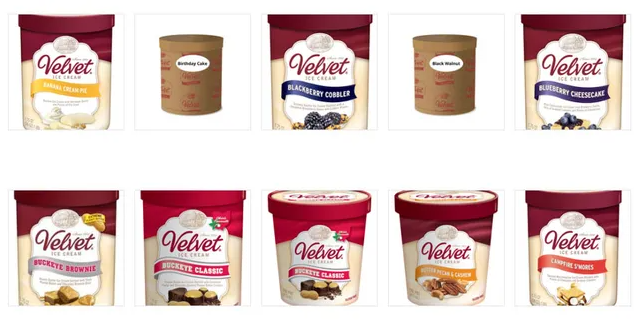The Canadian Food Inspection Agency (“CFIA”) reports that Give and Go Prepared Foods Corp. (Toronto, Ontario) and a subsidiary of Mondelez International, recalled batch/lots of Original Two-Bite branded Chocolate Chip Banana Bread products from the Canadian marketplace due to suspected spoilage and possible Mold contamination. The product was sold and delivered in 250 gram packages with a batch/lot of 21081. These Chocolate Chip Banana Bread products were marketed, distributed, and sold in Alberta, Manitoba, and Saskatchewan. However, it is always possible these food products had wider distribution within the country. @ https://healthycanadians.gc.ca/recall-alert-rappel-avis/inspection/2021/75505r-eng.php
ruth
Information for Notification: Original Two-Bite brand Chocolate Chip Banana Bread recalled due to mould
ruth
A study published in J. food Protection ( Gorski et al. Food Prot (2021) 84 (5): 903–911) investigated the mechanisms used by L. monocytogenes for attachment and growth on two surfaces (stainless steel and lettuce). 23 L. monocytogenes and 1 Listeria innocua were screened for attachment and growth on lettuce at 4 and 25°C and stainless steel at 10 and 37°C. Overnight growth of attached cells resulted in a 0- to 3-log increase on lettuce, depending on the strain and the temperature. Strains that grew the best on lettuce belonged to serotypes 1/2a, 1/2b, and 4b and were from cheese, potatoes, and water-sediment near produce fields. L. monocytogenes interacts with the cut edge and veins of lettuce leaves. On stainless steel coupons, there was a 5- to 7-log increase at 10°C after 7 days and a 4- to 7-log increase at 37°C after 40 h. Some strains grew well in both environments, whereas others showed variability between the two surfaces. @ https://meridian.allenpress.com/jfp/article-abstract/84/5/903/450813/Growth-and-Survival-of-Attached-Listeria-on?redirectedFrom=fulltext
A Salmonella outbreak was traces by Swedish officers to chocolate wafers from Poland. From late December 2020 to early April 2021, 32 individuals in 15 counties fell sick due to infection with identical Salmonella Enteritidis. Nineteen sufferers have been under the age of 10, whereas 9 individuals have been above 70 years. The source of the outbreak was identified as a chocolate wafer bought in Axfood shops. Analysis by the Nationwide Meals Company found Salmonella in chocolate wafers of the Eldorado. Axfood issued a recall of the batch in question, which got to Sweden from Poland. Additional testing confirmed the isolate from chocolate wafers was the identical kind as that present in ill people. The recall applied to Eldorado chocolate wafers 415-gram with a finest earlier than the date of Sept. 15, 2021, and batch quantity 350.3 E400:56. @ https://globalnewsandentertainment.com/salmonella-outbreak-in-sweden-linked-to-chocolate-wafers/
Swedish officers have traced the supply of a Salmonella outbreak to a model of chocolate wafers from Poland. Between late December 2020 and early April 2021, 32 individuals dwelling in 15 counties fell sick after an infection with the identical kind of Salmonella Enteritidis. Nineteen sufferers have been youngsters underneath the age of 10 whereas 9 …
ruth
The Utica-based Velvet Ice Cream announced the recall of all of its ice cream and sherbet products made on or after March 24, 2021, due to possible contamination with Listeria monocytogenes.
The contamination was discovered during routine testing. Velvet Ice Cream did not report any illness or injury has been associated with the recalled products. The recall has been issued in cooperation with FDA. The products were distributed to Indiana, Kentucky, Ohio, and West Virginia through various drug stores, convenience stores, and supermarkets. The recall marks the third time Listeria was discovered at a Velvet facility in the past four years. In May 2019, the FDA sent a letter to Velvet informing the company that swabs taken from the Utica manufacturing plant tested positive for Listeria.FDA claimed that the company’s sanitation plans were insufficient. The same strain of Listeria had been found during a 2018 inspection of the Utica plant. @ https://local12.com/news/nation-world/recall-issued-for-ice-cream-products-made-in-ohio-due-to-possible-listeria-risk#:~:text=Recall%20issued%20for%20some%20ice,due%20to%20possible%20listeria%20risk&text=UTICA%2C%20Ohio%20(WSYX)%20%E2%80%94,2021%20due%20to%20possible%20contamination




